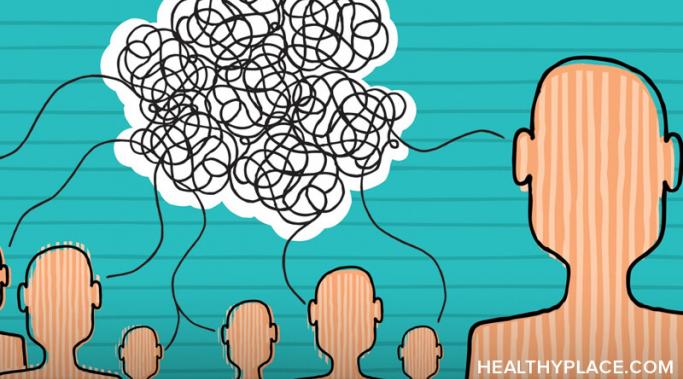Sometimes when we think about how to stand up to stigma about mental health, I think we get too caught up in the idea of an outward battle against mental health stigma. We might forget that we can arm and armor ourselves against it. As I've written before, mental health stigma may never go away, so it's about equipping and molding ourselves to better be able to withstand it. It doesn't just happen with a snap of our fingers though; it's a process to take on and continuously work at. If you're needing encouragement or guidance to stand up to stigma, here are some things you can try.
Surviving Mental Health Stigma
These days, using the word trigger will probably elicit a few reactions: eye rolls, groans, and insults. Yes, there are people that take the word trigger seriously when used in conversations about mental illness, but, for the most part, it has become a derogatory thing that people use sarcastically to insinuate that people are too politically correct or soft. The negative side effect of that is that people who talk about mental illness triggers are also regarded with the same disregard when triggers can actually have serious impacts on people with mental health disorders.
Working with social anxiety isn't a cure for social anxiety disorder, but working with the disorder has taught me a few things. Other people may look at social anxiety disorder and think that people just need to get over their irrational fears or worries and become productive members of society, especially when it comes to working. I was one of those people who wondered how I would ever be able to work considering the paralyzing anxiety I felt from having to deal with the public, using the phone, and other work-related things. I felt (and sometimes still do feel) the constant pressure of that stigma saying suck it up and go to work. So I did, and here's what I learned from working with social anxiety.
Celebrities' mental health stories help us see that anyone can have mental illness: this statement is not something that I can stress enough. It doesn’t matter how much money you have, how much happiness there is in your life, or if you have a “reason” for being sick — sometimes you’re just sick, and that’s the long and the short of it. Celebrities' mental health stories go a long way toward showing that we're all susceptible to mental illness.
The effect of exercise on mental health and mental illness isn't what most people think. One of the go-to remedies for those who don’t understand mental illness is to suggest those who have a mental illness exercise as if it’s a cure. It’s often used in the argument that pharmaceuticals are bad by saying regular exercise is the only real cure. While being active can have a positive effect on some people, it’s still not a cure for mental illnesses. Because of that, the suggestion of exercise to fix them is very much a notion of stigma because of its oversimplification and misunderstanding of mental illness.
The idea of mental strength often plays into mental health stigma. Out of the many ways we endeavor to encourage people through tough periods of mental illness, encouragement to use mental strength is pointless. Many of these ways are phrases or words meant with the best intentions, but they can also be potentially harmful — or at least I’ve seen the harmful effects they’ve had. Of the number of platitudes people say, one I get stuck on is “stay strong.”
Is it possible to destigmatize mental illness by refusing to use the word "stigma?" If you’re having a discussion about mental illness, it’s almost inevitable someone will mention stigma. When talking mental health, stigma refers to the misinformed perceptions and ideas about mental illness and those with it. It’s a big component in why people feel ashamed to have a mental illness and suffer in silence instead of seeking mental health treatment and understanding that mental illness is just an illness. Since there is still widespread misinformation, it’s not surprising the word "stigma" comes up often. What is surprising, however, is that there are those who say stigma does not exist, we should stop using the word "stigma," and I’ve even seen the claim that it’s offensive. Can we destigmatize mental illness by not using the word "stigma?"
I’ve begun to wonder if current mental health awareness efforts are enough to fight stigma. The word "awareness" in relation to mental illness has a strange effect on me these days. On the one hand, I think awareness is great for helping people better understand the realities of mental illness and the people who live with it. On the other, I feel the word itself feels tired, overused, and almost ineffective as it seems to appear in many places, but somehow manages to lack the impact it could have. I'm not sure if mental health awareness efforts are enough.
Dehumanizing people with addiction is something many people do without thinking about it. For example, when someone says “addict,” there are probably a few images that readily come to mind and descriptors to go along with those images — crackhead, drunkard, nasty, degenerate, the list goes on. This is the stigma of mental illness at play as preconceived notions and dated ideas of what it means to have an addiction take over our perception. When we let that happen, we’re dehumanizing people with addiction. This happens with all kinds of addiction, too.









